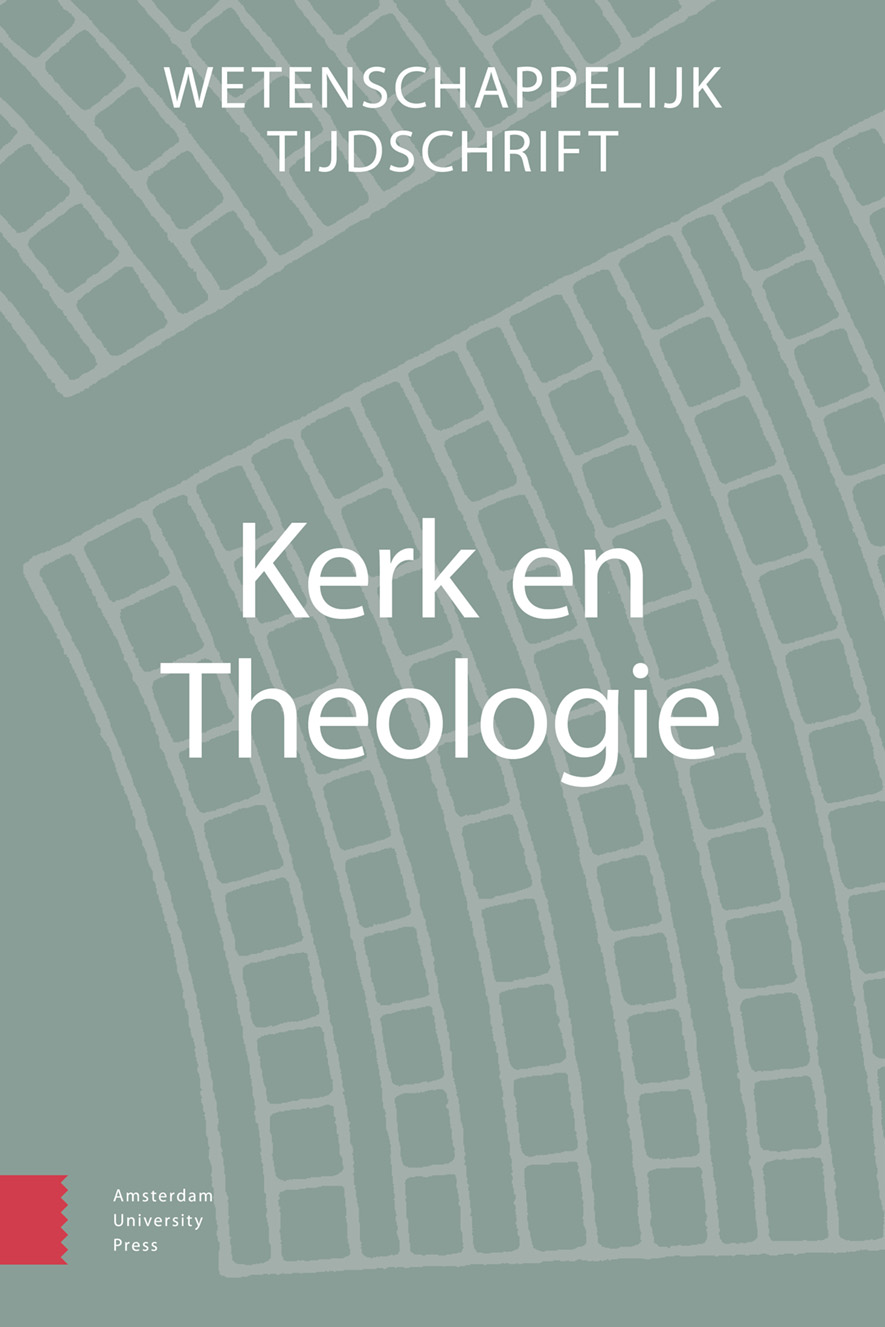- Home
- A-Z Publications
- Kerk en Theologie
- Issue Home
Kerk en Theologie - Current Issue
Volume 76, Issue 4, 2025
- Editorial
-
- Opinion
-
- Research article
-
-
-
Theologie van de natuur of geloof in God de Schepper?
More LessReflecting on Karl Barth’s theological approach of creation in the realm of eco-theological discussions easily leads to the conclusion that Barth is defending a so-called ‘critical’ view on creation and that Barth’s contribution should be seen in warnings for a romanticizing view of nature – bearing in mind he resisted against any legitimation of creation orders. Barth’s doctrine of creation however, founded in the doctrine of election, does theologically more justice to the reality of our natural existence, even to that of animals and plants, and Barths contribution to eco-theology should be founded in the doctrine of human sin, rather than in a new theology of nature.
-
-
-
-
‘Trouw ook aan de aarde’1
More LessEcofeminist theology appears to be in opposition to the theology of K. H. Miskotte. Miskotte opposed natural theology and approached creation from a soteriological standpoint. In his footsteps, nature and creation became suspicious categories in theology. However, Miskotte is also known for his love of nature, especially the woods, as testified in his published diaries. Might Miskotte’s love of nature and his thinking on creation contribute constructively to ecofeminist thinking? In this article, the idea is contested that Miskotte’s love for nature was just a juvenile, romantic phase, and two starting points are proposed on how Miskotte’s thinking could contribute to ecofeminist theology.
-
-
-
Rentmeester, priester, cantor
More LessThe steward metaphor has been dominant in Christian ecotheology for decades, but has recently been challenged by an alternative drawn from Eastern Orthodoxy: the idea of humanity as the priest of creation. Essential to this concept is the material nature of the Sunday Eucharist. According to Elisabeth Theokritoff, humanity is called to lead all creation toward theosis in a cosmic Eucharist. In this article I critically examine this concept noting that New Testament ecclesiology lacks a clear priestly office. Furthermore, this metaphor holds little relevance in Protestant contexts where the figure of the priest is unfamiliar. I propose the metaphor of humankind - as one among others - as liturgist or cantor of creation as a more fitting way to express the relationship between God, humanity, and the rest of creation.
-
-
-
Wat doet de verstandige in een kwade tijd?
More LessAuthor: Bob BeckingAt first sight, Amos 5:13 interrupts the prophetic discourse in Amos 5. Many scholars read 5:13 as a wisdom text that is added by a late redactor. Basic to this view is the interpretation of the noun maśkîl as a ‘sage’ and the translation of the verb dāmam with ‘to be silent’. To both assumptions, I will formulate an alternative: maśkîl is not necessarily connected to a wisdom context and the verb dāmam should in this verse be rendered with ‘to moan’. By implication, Amos 5:13 should not be construed as a later addition but seen as an organic part of Amos 5:1-17.
-
-
-
Praktijk wordt principe
More LessAuthor: Klaas-Willem de JongThe synod of the Protestant Church in the Netherlands (PKN) has decided to refer to the ministry of a pastor as an ordained office, fundamentally distinct from the so-called offices of the congregation (elder, deacon). It does so on the basis of the report Geroepen door Christus (2020). In this contribution, the author analyzes this report against the background of the so-called Roman articles in the PKN church order, which are to be regarded as fundamental. He concludes that the substantiation provided for ordained ministry by Geroepen door Christus is incompatible with the Roman articles and its underlying theology of ministry which reasons from one fundamentally indivisible office.
-
- Research note
-
- Book review
-
Volumes & issues
Most Read This Month Most Read RSS feed


